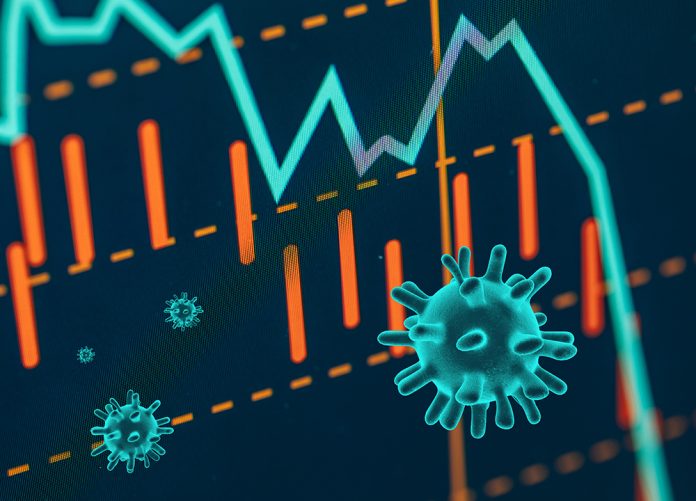dow falls 2.5% as omicron variant detected in south africa
Viruses mutate over time. Often, the variants are little cause for concern, such as the “Delta plus” mutation of the coronavirus, unlike the Delta variant which has been twice as contagious as previous variants. And lately, a new coronavirus variant, designated Omicron, has been detected in South Africa and may be more resistant to vaccines than previous versions of the virus.
This development almost immediately crippled stock markets around the globe. Several airlines saw their shares fall nearly 10% as different governments began to discuss travel restrictions, while “stay-at-home” company stocks like Netflix and Peloton rose. In the U.S. stock markets, the Dow Jones Industrial Average fell 2.53%, the S&P 500 dipped by 1.83%, and the Nasdaq Composite fell by 1.36%.
The economic impact of the Omicron variant shows how different companies’ share values are often affected by elements outside of their control. In his video series How the Stock Market Works, Dr. Ramon P. DeGennaro, the CBA Professor in Banking and Finance at the University of Tennessee, Knoxville, looked at these phenomena in terms of recessions and investing.
Dr. DeGennaro pointed out that every time the economy has gone into a recession since 1950, stocks have declined significantly. The unofficial definition of a recession, he said, is “two consecutive quarters of declining gross domestic product (GDP).”
“GDP is the total value of the nation’s production of goods and services,” he said. “If a nation produces less, then people earn less and they buy less; companies sell less and they earn less. Because stocks are claims on those company earnings, I’m not at all surprised that investors decide that they don’t want to pay as much for those claims as they would during good times.”
If an investor could predict a recession, they could sell before the price dips and buy back on the rebound. This would require three things: being able to forecast turning points in an economy, selling before other investors saw the recession coming, and buying again before those other investors saw “the light at the end of the tunnel.”
Dr. DeGennaro said that we have a decent indicator of those changes, known as the Conference Board Leading Economic Index, which is a composite of 10 factors like consumer expectations and unemployment reports. However, since it’s available to the public, it’s impossible to use it to get a head start over other investors. Other problems abound when trying to forecast stock prices falling in order to make a profit, but that doesn’t mean it’s a waste of time.
“You can do two things to help you manage your risk and sleep better at night,” he said. “The first is that you might want to take a little money off the table when the market gets unsettled—remember, you’re managing risk by doing this, not trying to make a profit.
“I also know lots of smart people who stick with their holdings gets riskier; they don’t make any changes at all.”
Instead, they focus on the higher expected returns in the long run, because higher risk can mean higher reward.
The stock market can be unpredictable due to external forces, as the discovery of the Omicron variant has shown. Wise investment and risk management can minimize loss and protect investors.
Edited by Angela Shoemaker, The Great Courses Daily

Music History Monday
TGC Blog
Roy Benaroch’s Pediatric Insider
Professor’s Perspective
Smithsonian Articles
National Geographic Articles
Culinary Institute of America
Newsletter Archives
About Wondrium
Wondrium
The Great Courses
Contact Us
Sitemap
Privacy Policy
Terms and Conditions
© The Teaching Company, LLC. All rights reserved.






